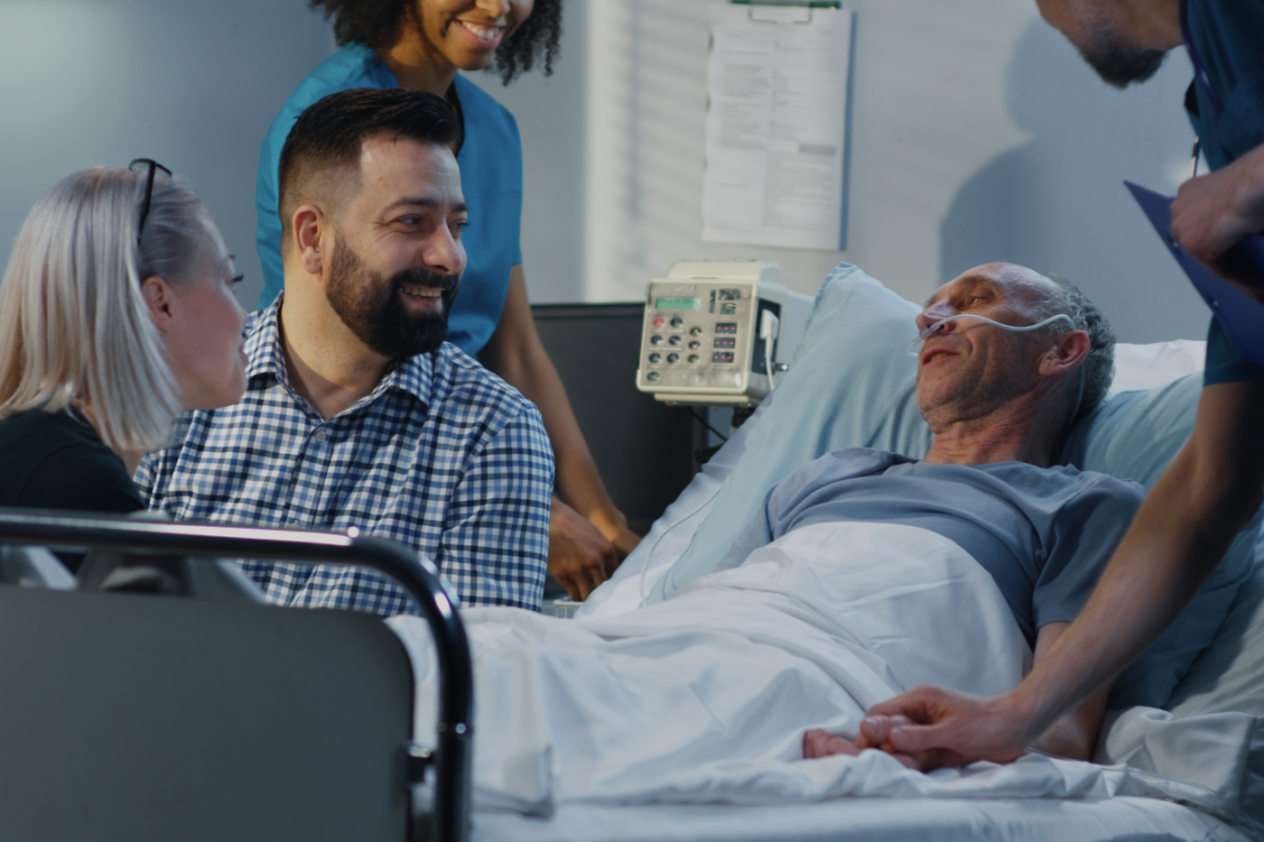Visiting loved ones in the hospital can do wonders for lifting their spirits and making them feel supported, especially during the winter doldrums. That’s why it’s important to take precautions so you’re not spreading infection while spreading cheer.
The most frequent way that infection is transmitted in the healthcare setting is through direct contact. This includes touching something – like a doorknob or bedrail – that has been contaminated and then carrying it to the patient. Visitors also can bring in viruses from outside the hospital and inadvertently pass them along to a loved one or other hospital patient. Here are some tips to avoid transmitting germs when visiting someone in the hospital.
First Clean Your Hands
One of the most effective ways of preventing infection is to practice good hand hygiene. Properly cleaning your hands before and after visiting your loved one will remove germs from your hands and prevent you from transmitting them to someone or something else.
A 2022 study from the World Health Organization found that 70% of healthcare-associated infections (meaning, infections that patients acquired in the hospital while being treated for something else) could be prevented with good hand hygiene practices.
For proper hand hygiene, thoroughly wash your hands with soap and water for at least 20 seconds or use hand sanitizer with at least 60% alcohol. Make sure to get all of your hands, including fingertips.
You can also check the care team’s hand hygiene to make sure they are properly cleaning their hands. Many hospitals have hand hygiene monitoring systems in place, with user badges that indicate whether the healthcare worker is compliant with hand hygiene protocols.
Second, follow the protocols at the facility.
Hospitals may have special guidelines in place, such as wearing facemasks. Depending on the patient’s situation, you may also be required to wear gloves or gowns. Follow these protocols for everyone’s safety.
Third, limit exposure.
Hands are not the only source of transmission. Germs can be spread through other objects too. Prevent contamination by not placing personal items – like cell phones – on hospital surfaces. And make sure any items you bring for your loved one have been properly sanitized.
If you’re not feeling well, or if you have been around others who are ill, don’t visit your loved one in the hospital. Rather, check in on them through a phone call or video visit. It’s a great way to keep them company without increasing their risk of an in-person visit.
Finally
Visiting a loved one in the hospital can reduce their anxiety, help them heal, improve their mood and provide needed emotional support. For example, one study found that 98% of patients who were surveyed felt that having visitors improved their wellbeing. By maintaining good hand hygiene, following hospital guidelines, and being mindful of your own exposure to illness, you can help prevent the spread of infection too.

